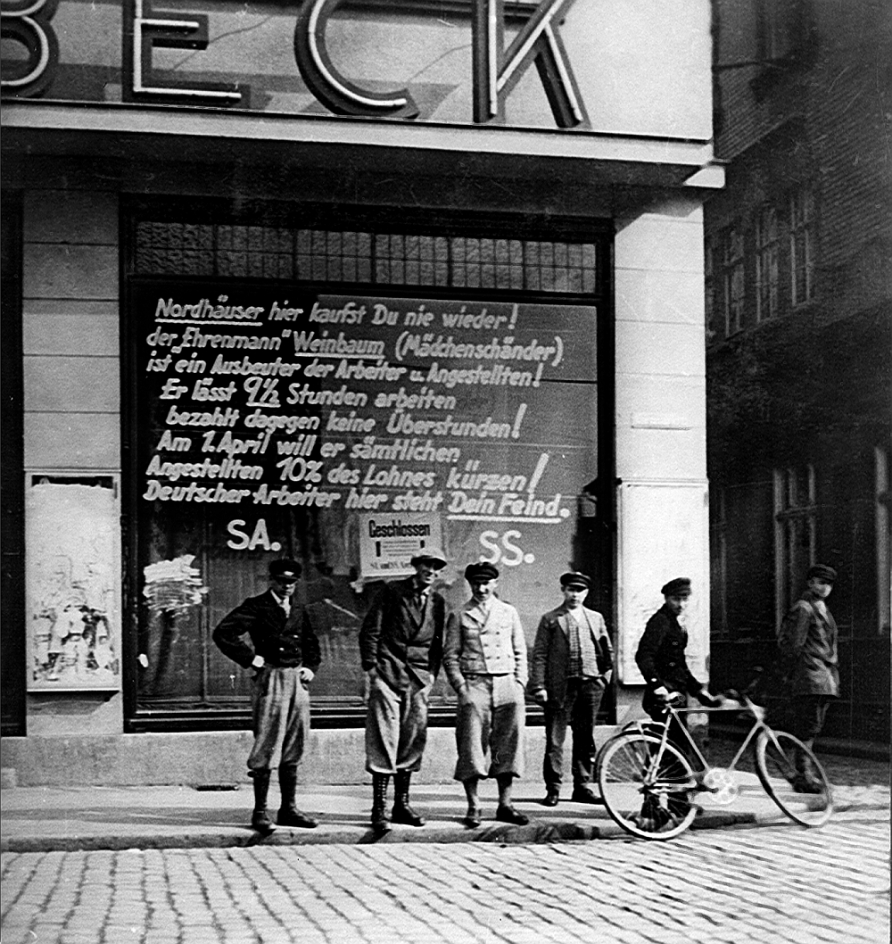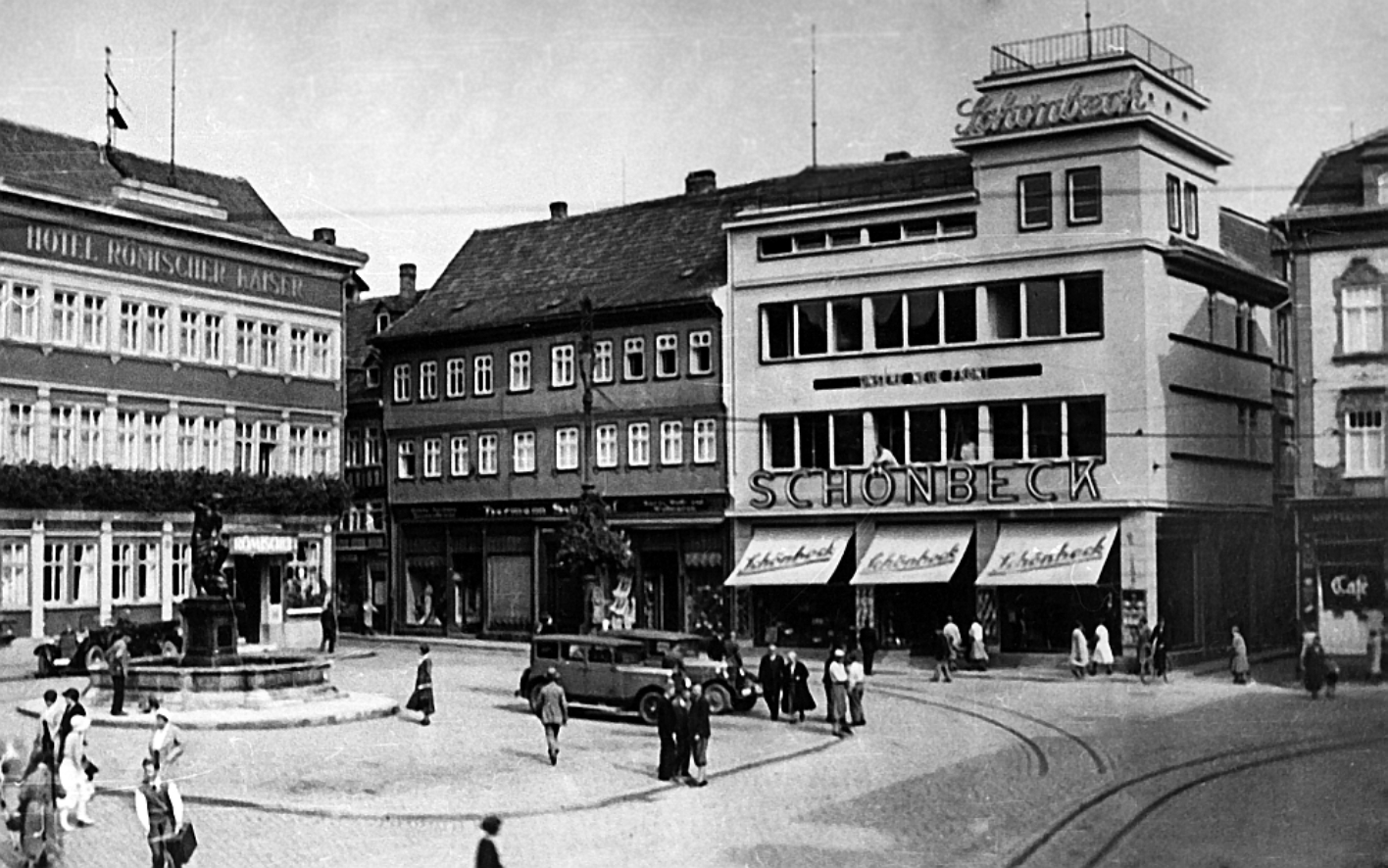


The Schönbeck fashion store, which was run by the Jewish Weinbaum family, had a long tradition in Nordhausen. At the beginning of the 1930s, the department store was one of the largest companies in the city with 105 employees. After the National Socialist takeover, the family became the target of anti-Semitic attacks. The Weinbaums were forced to sell their fashion house far below its value. Not all members of the family managed to escape deportation to the extermination camps.
The organised persecution of Jews in National Socialist Germany began on 1 April 1933 with a nationwide boycott of Jewish businesses, medical practices and law firms. In small towns in particular, the National Socialists called for a boycott of businesses owned by Jews, driving the business owners to long-term ruin. The Weinbaum family was also affected by public hostility and boycott campaigns: the SA and SS daubed the shop windows of their department store with slander and prevented customers from entering.
After the
After the forced sale of the family business, some of the Weinbaum family managed to emigrate to the Netherlands. They survived the German occupation and the war there. Other family members remained in Nordhausen and were later deported to camps. They are still considered missing today.
